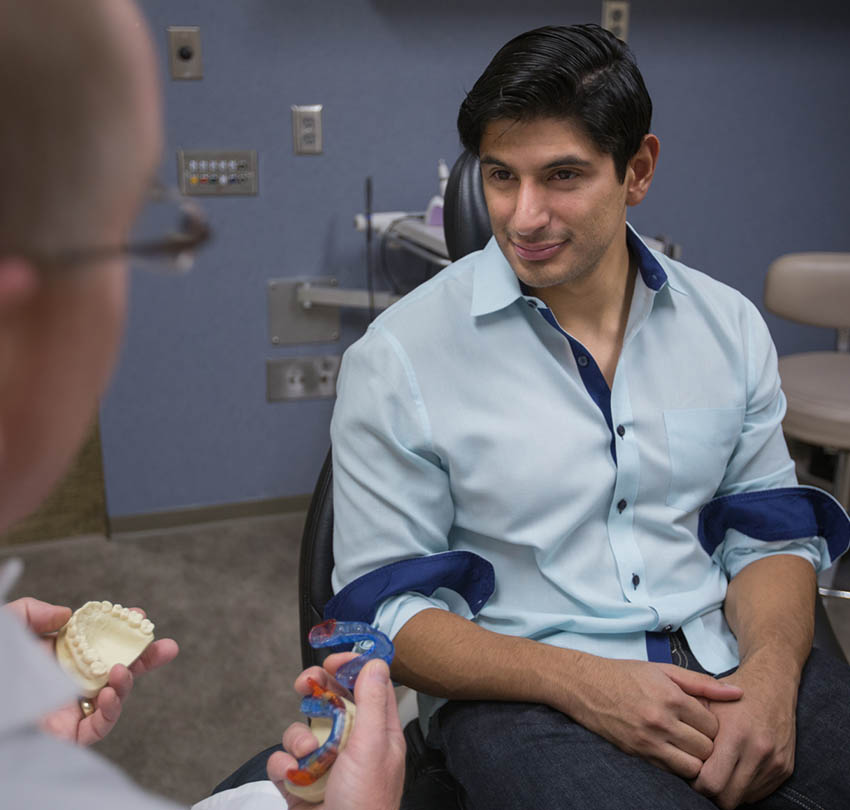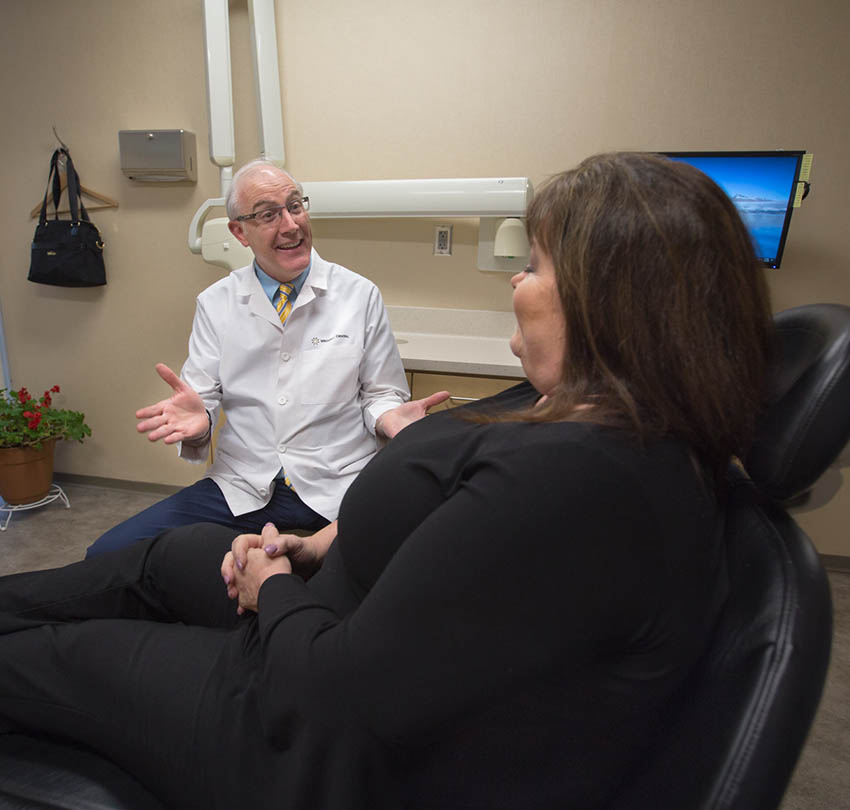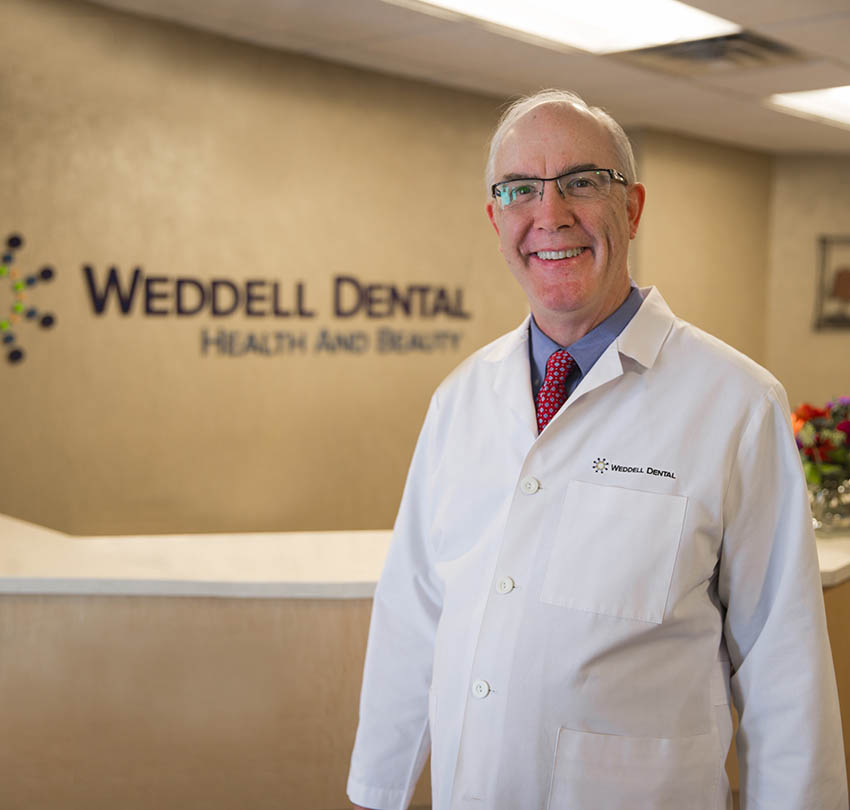We’ve been treating patients with sleep apnea for the last five, six years, and it’s always a little bit surprising to people. “Well, you’re the dentist, what do you know about that?” but there certainly are indications that we’ll see that patients may have some sleep apnea issues going on. We send home a sleep screening, a pulse oximeter. They take it home, they put it on their finger overnight. They bring it back and drop off the results. We download it and talk about it. Depending on what the results are, we may say, “Gee, you should probably be screened for sleep apnea with a physician. There is something going on, and by ignoring the problem, you could be ignoring a serious issue.” People that do have sleep apnea are more likely to have heart attacks. They’re more likely to have strokes. They’re more likely to have dementia, which makes sense if you think about the fact that the brain isn’t getting oxygen, so. There are different ways to treat sleep apnea. Everyone knows about the CPAPs with the CPAP mask, and nobody likes the CPAP mask. A dental appliance is often a wonderful alternative to doing that. We will make sleep apnea appliances. After we make the sleep apnea appliances, we do a home sleep test to make sure that the appliance is effective. We don’t want to make it and give it to you and say, “Gee, I hope that worked,” so if a dentist is making a sleep apnea appliance, it’s very important that the dentist verifies that it’s working by doing sleep apnea tests. And we do that and we check it. Sleep apnea has to be diagnosed by the physician before a dentist treats it, but a dental sleep apnea appliance is a very important part of treating sleep apnea for patients.
Skip the CPAP for a Simpler Solution
People who have sleep apnea stop breathing when they fall asleep. Your brain responds by waking you, although you may not remember it. These stoppages can occur hundreds of times every night. They prevent you from reaching the stages of deep sleep. These stoppages put stress on your body, which may explain why people with this condition have an increased risk of depression, diabetes, heart disease, and dementia.
Obstructive sleep apnea is the most common type of this sleep disorder. It occurs because your muscles relax when you fall asleep. Soft tissue can then block your airway. To treat this problem, you must keep the airway open. A continuous positive airway (CPAP) machine does this by pushing air into your mouth or nose to keep the airway open. Many people find the CPAP troublesome to use because they don’t like wearing a mask, the sensation of the air pushing into their mouth or nose, or the sound of the machine.
As an alternative, Dr. Weddell can design a special oral appliance for you. The appliance:
- Works by shifting the resting position of your lower jaw to keep your airway open
- Allows you to remain asleep long enough to enjoy deep, rejuvenating rest
- Doesn’t require electricity, batteries, or any other power source
- Is much easier to transport and use while traveling than a CPAP
- Fits comfortably in your mouth, much like a sports mouthguard
- Is less distracting for both you and your bed partner
If you suspect that you may have this condition, set up a consultation at Weddell Dental as soon as you are able. We can conduct an assessment and, if needed, we can help you get started on treating your condition. Don’t wait to treat your sleep apnea in Bloomington, MN!
Call 952-884-7706 or schedule online to make your appointment. Remember to schedule your regular exams, too.



